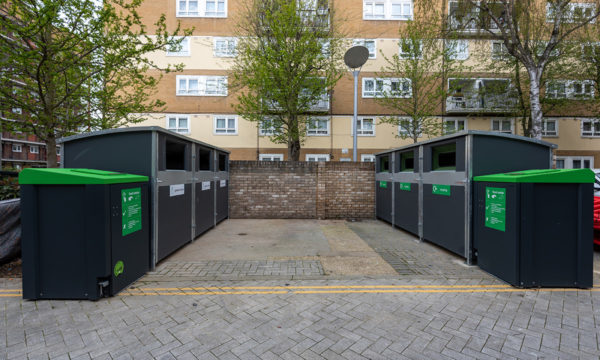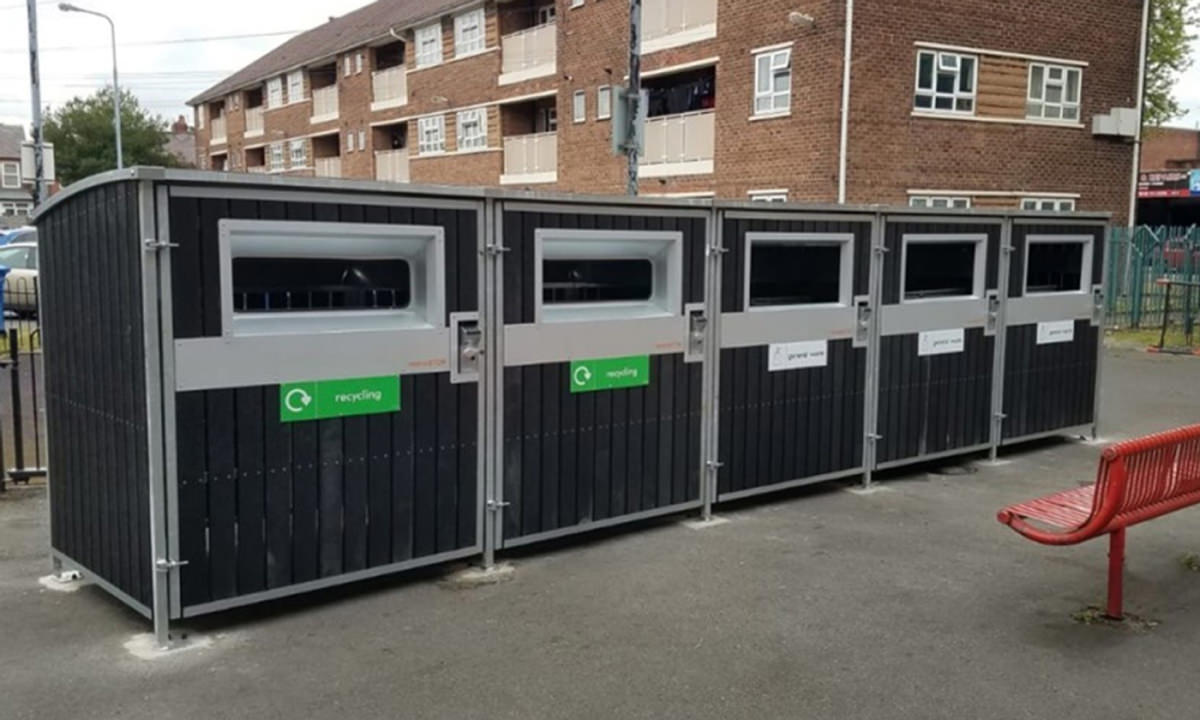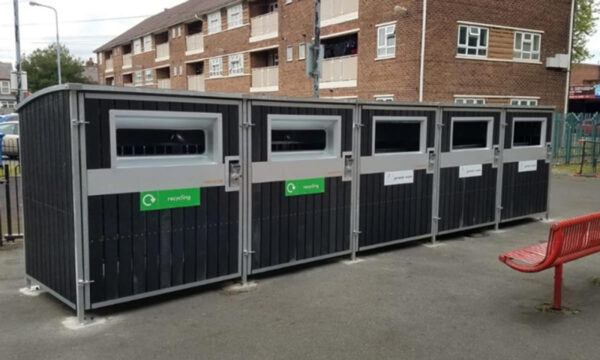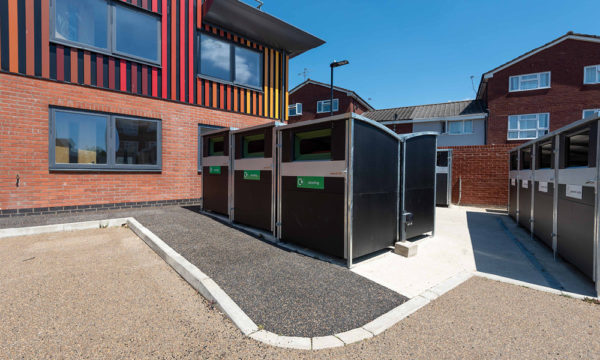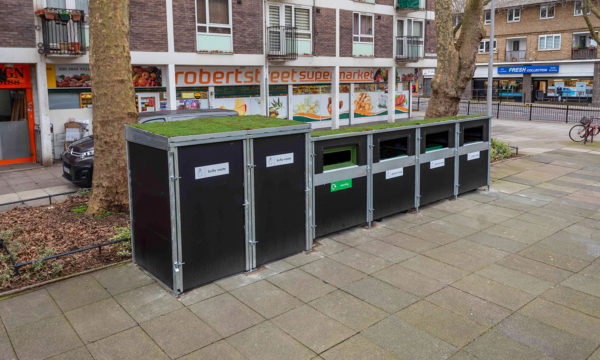Case Study Highlights
| Project | Winterton House |
| Client | Tower Hamlets Community Housing |
| Scope | metroSTOR PBMT Bin Storage Housing |
Playing a vital role in developing clean and safe neighbourhoods, urban waste management is developing across London as part of the capital’s ambitions to become a zero-waste city. By 2026, the Mayor of London’s target is to achieve a 100% landfill diversion rate for all biodegradable waste and recyclables, alongside a 2030 aim for 65% of London’s municipal waste to be recycled.
Around 7m tonnes of waste is produced in London annually from households, public buildings and businesses. Internal bin chutes, still a common method for waste disposal in many of London’s community housing neighbourhoods and blocks of flats, raise a number of key issues.
While enabling convenience for residents by offering access across multiple floors, blocked bin chutes create health and safety risks and can be costly to repair, often resulting in service charges for residents. Larger refuse sacks, while necessary for handling higher household waste volumes, are typically incompatible with bin chutes, resulting in blockages and posing a significant fire risk if not appropriately maintained.
While modern bin chute systems can facilitate recycling, retrofitting older properties is expensive. Recycling rates are therefore typically low as residents simply aren’t afforded sufficient options or enough incentive to separate their recyclables. It’s often far easier to dispose of all their waste in one general waste stream.
Of the London Boroughs, Tower Hamlets has the lowest recycling rate in the capital, reporting a ‘dry recycling-reuse’ rate of under 20% for 2023. A notable factor in this is, at nearly 16,000 residents per square kilometre, it is one of the most densely populated areas in England. 70% of dwellings in the borough are rented, split equally between private renters and social housing. Looking to replace the existing bin chutes at Winterton House, one of their high-rise housing blocks, local landlords Tower Hamlets Community Housing (TCHC) recently worked closely with metroSTOR to help improve waste disposal and recycling among their residents.
For Winterton House, the solution was to implement a new and effective bin storage system. Specifically dimensioned to enclose 4-wheeled metal bin containers manufactured by Taylor Continental, 2no. metroSTOR PBMT Bin Housings were selected. The bin containers offer a reduced footprint in comparison to many plastic alternatives currently on the market. In tight urban environments, the space saving afforded by the metroSTOR PBMT can be especially advantageous.
Secured externally at a safe distance from surrounding buildings, the new waste & recycling system provides distinct advantages over the existing bin chutes, easily accommodating larger refuse sacks; eliminating the risk of chute blockages, and helping to reduce the associated fire risks. To help increase recycling rates among residents, clearly-designated bin apertures enable the easy concurrent disposal of separated refuse and recycling.
Tower Hamlets Community Housing hopes that the success of the bin housings at Winterton House will enable further opportunities to integrate the units out across more of their neighbourhoods, with the ultimate aim of improving waste disposal and recycling in the Tower Hamlets borough.
